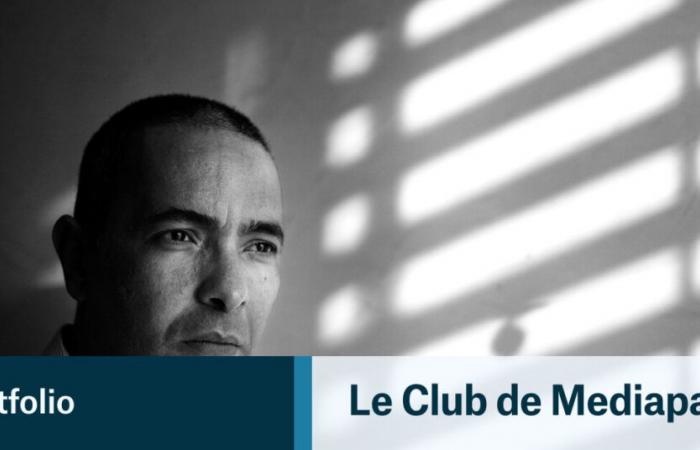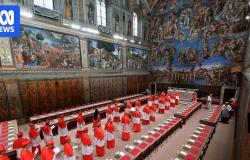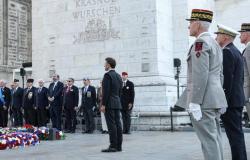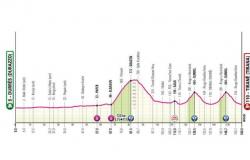In his quest for distinction in the face of ambient conformism, the enlightened Arab intellectual can end up complying, without his knowledge, with reverse orthodoxy. Perhaps this contradiction sums up the tragedy of the Algerian writer who has become French, Kamel Daoud. Man wants to be more Western than Westerners, to the point that he can not help remodeling and calibrating the truth, while building his legend on the idea that he led alone, until the last breath, a war against these Arabs and these Muslims who would embody all the evils of the earth and would arm the monopoly of truth and its interpretation. What is boring in this repeated story is precisely that it is repeated endlessly, so much so that the public is no longer fooled by a Manichean vision of the world. Her tragedy is not only personal, she reflects a history torn between two worlds: a world shaped by colonialism, deeply anchored in the spirits, and a world shaped by the postcolonial state, heir to colonization, but unable to overcome it.
Some time ago, Daoud published an article in the French magazine The pointentitled: “Why is the called the Arab world is not worried about artificial intelligence?” “, In which he concluded that AI did not arouse any concern in the Arab countries – unlike the West – because” falsification and erasure of the rights of the authors are a well -established Arab tradition “. Perhaps there is a part of relative truth, but what worries is that Daoud himself, after having won the prestigious Goncourt prize for his novel Hourissaw the emergence of revelations according to which the novel would be inspired by real facts experienced by an Algerian young, from which he would have drawn the story from his medical file, while she followed psychological therapy with his wife.
The novel evokes the Algerian civil war of the 1990s through the story of a young hairdresser, the only survivor of her family during the “black decade”, carrying in her flesh the stigma of massacres, materialized by a throat scar which prevents him from speaking. After the prize announcement, Saâda Arbane, struggling to express themselves because of the consequences of an attack having damaged his vocal cords, accuses Daoud of having “stolen his medical file and transformed his life into a novel”. These accusations quickly ignited social networks and the spheres of official debate. Some consider that Daoud has crossed an ethical limit by exploiting the suffering of others for literary purposes, in addition to the question of medical confidentiality experienced by his wife. Others defend freedom of expression and literature law to deal with sensitive subjects. This conflict therefore raises crucial questions on the necessary sensitivity in the treatment of subjects linked to violence, memory, and the identity of the victims.
But beyond this debate on the nature of literature and its role, and beyond the obsession of Kamel Daoud to ask himself as a dissident writer, arises the question of the nature of this dissent: is it a simple rejection of the political and religious authorities, or else a hate of cultural self which consists in imputing all the evils of the world to its own culture and to seek the culture of the other. Universal? And is this self-hatred linked to the material and symbolic profits that this posture provides in the culture of the other?
Unlike previous editions of the Goncourt Prize, marked by the suspense, the last edition seemed to be run in advance. No one doubted the price would return to Kamel Daoud. The author had prepared for it a year in advance, with articles and positions favorable to French policies and not that it attack the camp of Insoumise France and in particular to Rima Hassan and by aligning with the Western position vis-à-vis the genocide in progress in Gaza. He has not stopped, at regular intervals, to attack what he considers as Arabity or Islamity, attributing to the Arabs and Muslims all the ills of the world. He even reserved superficial criticisms on the world left and attacked the French left, embodied by rebellious France, in terms that even certain figures of the extreme populist right would dare to use. His attacks have targeted Russia and China as well as the South Global, to the Kanak people of New Caledonia, thousands of kilometers from Paris. And by a strange coincidence, all the enemies of Daoud in his publications are also those of the French leader elite. Then occurred a political “boon”: tensions between France and Algeria exacerbated themselves, while relations between Paris and Rabat were reinforced, especially after President Emmanuel Macron recognized the Moroccanity of Western Sahara. Politics and literature then mixed in a complex way, with a decisive role played by the Moroccan writer Tahar Ben Jelloun, member of the jury, who supported Daoud as an opposing Algerian writer.
It is impossible to separate literature from politics. Literature has always been a means of exploration and criticism of political issues. Literary prices often highlight works dealing with urgent social or political concerns. This recognition can support votes calling for change or bringing marginalized perspectives into public debate. But by choosing certain works, the institutions that award these prices influence the stories considered important. This process is intrinsically political because it reflects dominant ideologies and cultural priorities, which most price experiences are confirmed, and this is particularly obvious in the case of Goncourt in recent years.
-Literary prices have become soft power tools, serving precise geopolitical objectives. Like the Nobel Prize – especially in literature – which displays a clear preference for Western perspectives, raising questions about its global representativeness. In addition, juries are not immune to ideological influences: their decisions can reflect personal positions, the cultural climate or the interests of their institutions. This can lead to the marginalization of authors for their opinions, in favor of works perceived as politically useful. An often obscured aspect is the role of editorial power structures: the Literary Grands Prix generally benefit from the works published by the large established publishing houses, thus marginalizing independent voices. This dynamic underlines the intersection between cultural capital and economic power in the definition of literary norms and especially in the Western context or almost majority of publishing houses are in the property of people who are on the right where they display a kind of sympathy with the right by ideology or by pragmatism and this is particularly the case in France.
Kamel Daoud does not lack talent to be a universal writer, but he persists in defining himself as a French writer. For an Algerian-undoubtedly marked by the failure of the post-revolutionary state to establish a minimum of freedom and justice-the model to follow, in reaction to this failure, seems to be a symbolic return to the forefront. This cultural hate of self translates a state in which individuals or groups develop a negative vision of their identity, their inheritance or their traditions. It often arises from a feeling of inferiority rooted in historical, social or political contexts having marginalized or devalued their culture. In the Algerian case, Kamel Daoud fully embodies this model.
Societies colonized or marked by a colonialism of settlement frequently develop the belief that their cultures are “backwards” or inferior to those of the colonizers, who impose their language, their customs and their values. Even after the end of colonialism, these societies sometimes continue to carry these stigmata, generating shame and rejection of their traditions. The failure of postcolonial states to build lasting models has enabled the dominant Western culture, via the media, the economy and the policy, to overshadow local cultures, making them apparently less modern or desirable.
This has sometimes generated extreme reactions: either a reactionary withdrawal that can fire violence and fundamentalism, or an absolute hatred of self and a desire for rupture and adhesion to dominant culture. Economic disparities aggravate these dynamics: when certain cultures are associated with poverty, individuals can reject their inheritance to align themselves with the dominant culture. This phenomenon is particularly noticeable in the Arab world, where Westernization is often perceived as a sign of success.
This cultural hatred of self – both symptom and causes deep social inequalities – perpetuates cycles of shame, alienation and loss. It is first of all the product of the failure of postcolonial ruling structures, which have not only inherited from colonial power, but also from its authoritarian tools, the concentration of power and wealth in the hands of a minority. They failed to carry out a social modernization, often preferring to rely on reactionary forces to consolidate their control. They transformed culture, religion and nationalism into ideological accessories used to strengthen domination, while dismantling the intermediate structures of collective expression. In search of control, these regimes often seek to impose a homogeneous national identity by repressing cultural diversity – by limiting the use of regional languages, by restricting freedom of expression or by promoting a single story excluding marginalized voices.
But to make the one who hates his culture a victim does not clear him from the responsibility of this consciousness. Because a large part of those who practice this hatred are aware of this and use it to their advantage. This hatred brings them material and symbolic dividends, assures them a status in Western societies, where these writers pass margins at the center of the literary and cultural scene. Their economic situation, their social status and their popular influence are reinforced. They then integrate a network of interests shared with the circles of publishing, the media and thought, which they can no longer detach.








